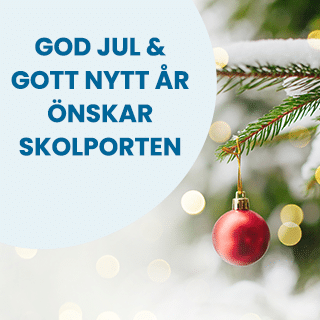Om gymnasieelevers diskussioner utifrån hållbar utveckling. Meningsskapande, naturkunskapande, demokratiskapande
När gymnasieelever diskuterar hållbarhetsfrågor inom naturkunskapsämnet gör de två saker samtidigt. Dels skapar de ytterligare förståelse om den specifika fråga de diskuterar. Dels arbetar de med att framställa sig själva och den värld de lever i på ett acceptabelt sätt. Det senare påverkar meningsskapandet kring den fråga eleverna diskuterar, visar Katarina Ottander i sin avhandling vid Umeå universitet.
Katarina Ottander
Eva Silfver, docent. Anders Berg, doktor. Shirley Simon, professor
Leif Östman, professor Uppsala universitet
Umeå universitet
2015-09-18
Om gymnasieelevers diskussioner utifrån hållbar utveckling. Meningsskapande, naturkunskapande, demokratiskapande
Institutionen för naturvetenskapernas och matematikens didaktik
Abstract in English
In this thesis the focus is on upper secondary school students’ meaning-making in sustainability in science civic education. The aim is to study how meaning is created, if/how natural science is used and how democratic participation is constructed in students’ group discussions. The thesis also aims to create an awareness of the role science has in both the creation of meaning and the construction of democratic participation. The study is based on audio-recorded group discussions arising from two different sustainability tasks. Discursive psychology is used as an analytical framework, through the concepts of interpretative repertoires, ideological dilemmas and subject positions.
The students use different interpretative repertoires that draw on different conceptions of the “world” (discourses) in their meaning-making. These different conceptions create ideological dilemmas that recur several times during the discussions and are therefore negotiated in different ways. The students then use strategies where these dilemmas are solved in a relatively simple manner. They construct the sustainability issue they discuss so that their ways to live and act/not act are portrayed as acceptable in the current situation. The students use their knowledge in and about science in their meaning-making. Science is used to make the ”world” more understandable and raise questions; to evaluate, decide and act; to give authority to arguments; and to solve societal problems. The students’ science-making process contains various kinds of use of scientific knowledge, for example, clarify the conditions, identify consequences, scrutinize information, compare, assess, evaluate and use scientific methods. The discussions increase the students’ experience of using scientific knowledge and which functions scientific knowledge can have. The students construct democratic participation in various ways: trust in science and technology are expressed and awareness of what is considered as actions that are “good” for the environment; different perspectives are expressed and ideological dilemmas discussed; students use their scientific knowledge in socioscientific reasoning to create a deeper understanding of the issues discussed; scientific knowledge is also used for evaluating actions in relation to sustainability issues. However, the students see themselves having a major responsibility to act “good”, but without power to influence the development of society as a whole. The students have two projects going on during their discussions: to discuss and learn about the sustainability issue and make their own existence acceptable.
Relaterade länkar

Svenska för högstadiet och gymnasiet
 Åk 7–Vux
Åk 7–Vux Perspektiv på samernas historia
 Åk 7–Vux
Åk 7–Vux 
